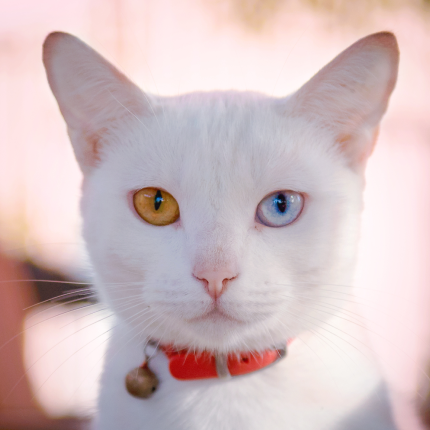Depression in Cats: Symptoms and Causes
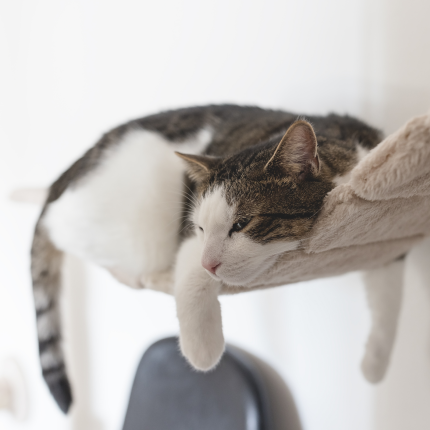
Many people unfairly believe that cats are aloof and unemotional creatures with no particular attachment to their owners, but that couldn’t be further from the truth. In fact, cats and humans have nearly identical parts of the brain that control emotions, implying cats could feel emotions similar to how we feel emotions. So it’s important to be able to identify when your cat is feeling blue and how to help her feel better.
advertisement
There are many reasons why cats can become sad or depressed. Cats are often dissatisfied for various reasons, including illness, boredom, grief over a lost family member or pet, and injury. Some cat owners shrug off a decrease in play or a cat sleeping more than usual as typical signs of getting older. When in reality, these are common symptoms of feline depression.
Keep an eye on your cat if it becomes unusually reserved or quiet. Discover the most common causes of depression in cats, as well as the signs to look for and the best thing you can do.
How to tell if your cat is sad or depressed
Suppose your cat meows more or less than usual. In most cases, unhappy noises are low-pitched, mournful yowls. A purr does not always indicate happiness, and an unhappy cat might purr to comfort itself. Normally vocal cats may become quiet, while quiet cats may become louder.
You can sometimes tell if your cat is unhappy by their body language, which includes her eye, ear, fur, and body positions. You can tell your cat is unhappy by their ears are back, her tail is tucked, her hair stands on end, and other body signs.
Your cat may be sad if their behavior changes result in them being scared or aggressive.
Loss of interest in the things that used to be a favorite pastime, become reclusive or hide from people. When cats are sad, they may become clingy or demanding, and their fear of strangers may be heightened.
Normally, cats sleep more than humans, but sad or depressed cats sleep even more. This can also indicate sadness if a favorite nap spot has moved, especially if the new sleeping spot is hidden or out of the way.
Grooming changes or poor grooming can indicate unhappiness or illness. Depressed or unwell cats often stop grooming themselves, leaving their coats looking unkempt.
When your cat stops eating or changes its appetite suddenly, it may be unhappy about something. Cats who are sad may snub foods they previously enjoyed and even lose interest in their favorite treats.
Spraying or changing bathroom habits: A sad cat may urinate in inappropriate places to feel better. Stress, depression, and sadness are among the top reasons for urinating outside the litter box. It is common for cats to urinate in high-value areas like lookouts, bedrooms, or where the scent of a deceased pet or missing person is. You should also be concerned if your cat soils outside the litter box.
A sad or depressed cat may scratch more than usual to relieve stress territory anxiety.
What Causes a Cat to Get Depressed
Cats can become depressed for a variety of reasons. When your cat is not acting normally, is less active than before, refuses to eat, appears to be in pain, or stops grooming itself, you should take her to a veterinarian for a full checkup to rule out potential medical conditions that might be causing these changes. Sadness or depression could indeed be the underlying cause of your cat’s problems if your vet gives it a clean bill of health.
Illness
Illnesses, especially chronic or painful ones, can be the cause of your cat’s depression, just as they can cause you to feel blue when you are sick. If it hurts to move around, the cat may not be her playful self. Due to the illness, the cat may feel nauseated, refuse to eat, have hormonal imbalances, or lack energy. There are a number of serious health issues that can affect your cat’s happiness level, including FIV, fatty liver disease, FeLV, diabetes, upper respiratory diseases, hypothyroidism, dental disease, and others. Schedule an appointment with your vet ASAP if you suspect your cat is in poor health.
Injury
An injury may restrict your cat’s ability to partake in enjoyable activities. It is also possible for your cat to feel unhappy after an injury. In the event of an injury or medical procedure, you should follow your veterinarian’s recommendations regarding pain relief. Make an appointment as soon as possible if your cat appears to be in pain but you are not sure why. Your cat may need chronic pain relief from old surgeries and injuries.
Loss of a Loved One
The loss of a family member is always difficult for everyone involved, and your cat is no different. When someone close (human or animal) is no longer a daily part of your cat’s life, your cat may become depressed. It is likely that your cat will return to its normal temper after some time. If your cat has become depressed because another cat in the household died, a new cat friend may help (or it may not). Don’t add another animal companion too soon after losing a pet, however. The best remedy for major changes is time, but pheromone sprays and nutritional supplements can also help your cat during these times.
advertisement
Boredom
While staying indoors is safer and healthier for your feline, a cat that is not provided with enough stimulation can become bored, which can lead to depression. Consider what it would be like to be stuck inside with nothing to do. Cats are no different. Ensure your cat has different activities to stimulate her mind and provide exercise. Cat depression, boredom, or sadness can be warded off with a variety of toys, cat furniture, climbing furniture, treats, and perhaps a window to gaze out of.
The Best Way to Help a Sad Cat
Your cat might be feeling blue, and you’ve already addressed any potential health conditions or injuries, so you might wonder what else you can do. There are quite a few ways to make a sad cat feel better.
Spend time everyday bonding with and interacting with your cat. Your cat feels loved and content when you pet it, allow it to cuddle on your lap, talk to it, and just pay attention to its antics.
Make sure your cat has different toys to choose from so she doesn’t get bored with any one particular item. “Cat dancers” with ribbons or feathers attached to a stick are particularly popular with cats.
You can give your cat a small treat every day, along with a healthy diet and fresh water. It gives your cat something to look forward to and enjoy. Your cat will quickly learn when it’s treat time if you offer it every day at the same time.
Consider getting your cat another animal companion. Some cats prefer to be the only pet in a household, while others prefer to cuddle and interact with another cat or even a dog. Before bringing another pet home, consider your cat’s temperament, age, health, and activity level.

Featured Articles
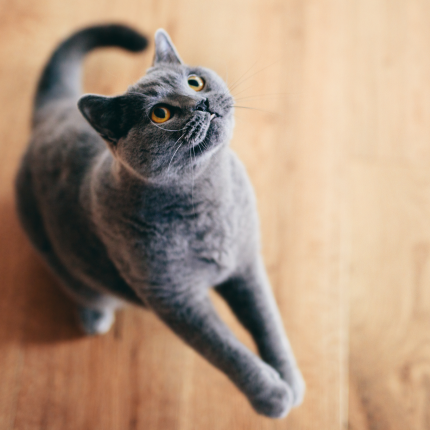
Greebles and Cats: The Origin and the Meaning
You may have seen an internet sensation concerning cats labeled “greebles.” Feel out of the loop? We’re here to help you. In 2019, Reddit user /user/literallyatree commented on a Reddit post about a cat that looks like it’s trying to slap a ghost. This user commented: “My family calls things…
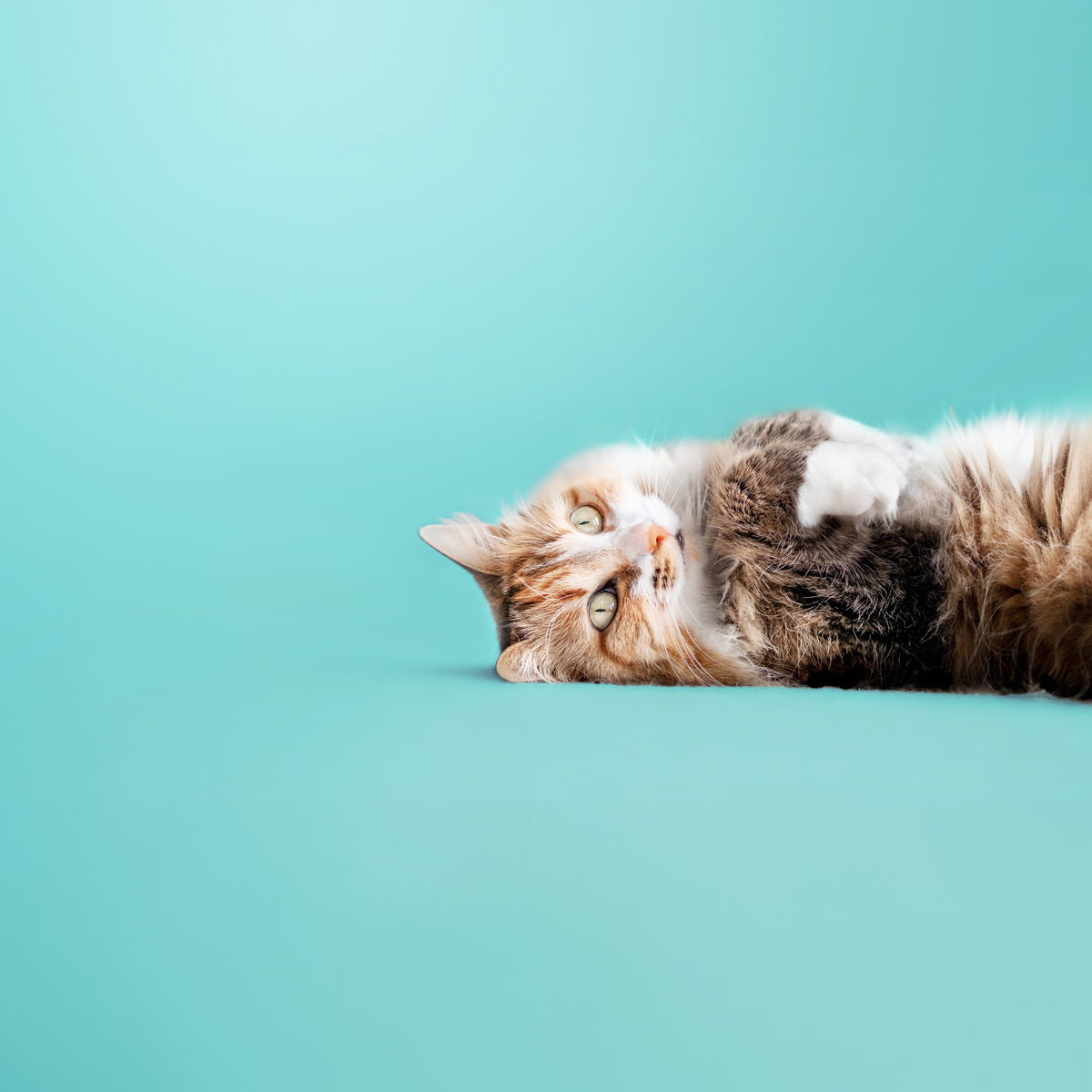
Why Do Cats Roll Over Into Their Backs But Not Let You Touch Their Bellies?
It’s common knowledge dogs love to have their tummies rubbed when they freely lay down before you and roll onto their backs. But, if you’re also familiar with cats, you know that when they roll onto their backs with their bellies exposed, rubbing the belly will most likely result in…
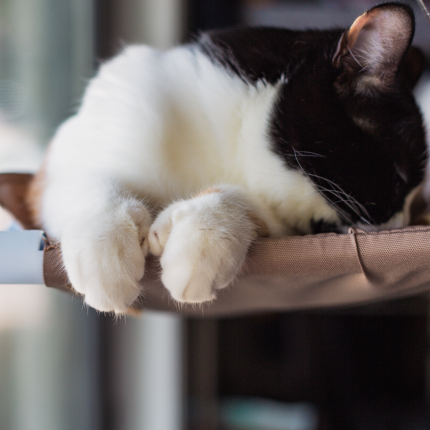
Polydactyl Cats: Just More Beans to Love
Polydactyl cats have become extremely popular in recent times. As a result, more and more people are interested in learning more about this six-toed cat and want to get one of their own. If you are a cat lover intrigued by polydactyl cats, you have come to the right place….
